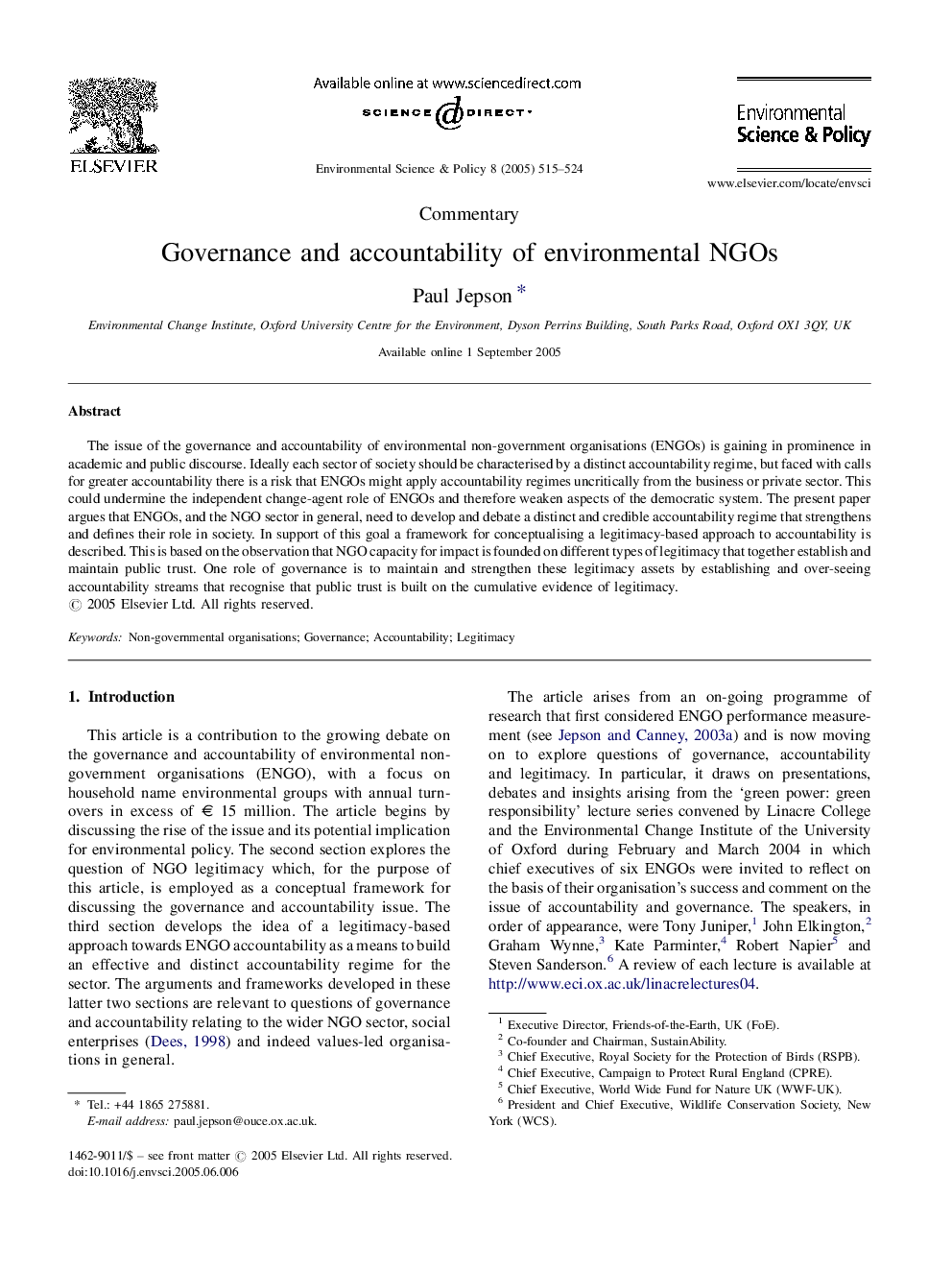| Article ID | Journal | Published Year | Pages | File Type |
|---|---|---|---|---|
| 10504749 | Environmental Science & Policy | 2005 | 10 Pages |
Abstract
The issue of the governance and accountability of environmental non-government organisations (ENGOs) is gaining in prominence in academic and public discourse. Ideally each sector of society should be characterised by a distinct accountability regime, but faced with calls for greater accountability there is a risk that ENGOs might apply accountability regimes uncritically from the business or private sector. This could undermine the independent change-agent role of ENGOs and therefore weaken aspects of the democratic system. The present paper argues that ENGOs, and the NGO sector in general, need to develop and debate a distinct and credible accountability regime that strengthens and defines their role in society. In support of this goal a framework for conceptualising a legitimacy-based approach to accountability is described. This is based on the observation that NGO capacity for impact is founded on different types of legitimacy that together establish and maintain public trust. One role of governance is to maintain and strengthen these legitimacy assets by establishing and over-seeing accountability streams that recognise that public trust is built on the cumulative evidence of legitimacy.
Related Topics
Physical Sciences and Engineering
Energy
Renewable Energy, Sustainability and the Environment
Authors
Paul Jepson,
